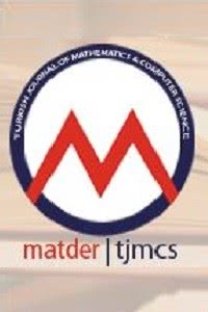The Analysis of Mathematical Skills Used in the Software Industry
The Analysis of Mathematical Skills Used in the Software Industry
Mathematical skills can provide a scientific basis for software engineering (SE) activities by helping practitioners comprehend the unambiguous logic, which is critical for both abstract thinking and problem solving besides development of any applications in the software industry. Many practitioners in different roles take different mathematics courses at the university education; however there are various perceptions about the necessity and the weight of these courses. textit{"What are their usage in the software industry?}" or textit{"do we need such a (heavy) mathematical curriculum at the university?}" are frequently asked questions for software teams. To better understand different opinions, we utilized the results of our survey, which investigated the skills gaps in the software industry. 628 Turkey-educated practitioners, whose undergraduate degree was completed in Turkey, working in 13 countries responded the survey. In this paper, we examined different perceptions (1) about the usage of the mathematics courses in the software industry; and (2) about current weight of these courses in the curriculum. The findings shed light on the perceptions about mathematical skills in the industry by presenting various cross-factor analysis.
___
- Akdur, D., textit{A Survey on Bridging the Gap between Software Industry and Academia: Preliminary Results}, in 13th Turkish National Software Engineering Symposium, 2019, url{https://www.researchgate.net/publication/334559697_A_Survey_on_Bridging_the_Gap_between_Software_Industry_and_Academia_Preliminary_Results.}
- Akdur, D, Modeling Patterns and Cultures of Embedded Software Development Projects, Thesis, Doctor of Philosophy (PhD), Information Systems, Middle East Technical University (METU), 2018.
- Akdur, D., textit{The Design of a Survey on Bridging the Gap between Software Industry Expectations and Academia}, in 8th Mediterranean Conference on Embedded Computing (MECO), Montenegro: IEEE, 2019, doi:10.1109/MECO.2019.8760101.
- Akdur, D., Raw Data Results: Survey on Bridging the Skills Gap, Mendeley Data, v1, http://dx.doi.org/10.17632/fx537tpw6f.1, 2020.
- Akdur, D., {em Survey Form: Bridging the Gap between Software Industry Expectations and Academic Activities}. Available: url{https://drive.google.com/file/d/1-1DAexMmd4_om_kahwDXLBwYdCYJ_l2m/view}, (accessed Mar 15, 2019).
- Bourque, P., Fairley, R. E., {it Guide to the Software Engineering Body of Knowledge (SWEBOK(R)): Version 3.0}: IEEE Computer Society, 2014.
- Devlin, K. J., The math gene: How mathematical thinking evolved and why numbers are like gossip: Basic Books, 2001.
- Kitchenham B., Budgen D., Brereton P., Woodall P., {em An investigation of software engineering curricula}, Journal of Systems and Software, textbf{74}(3)(2005, 325-335, doi:https://doi.org/10.1016/j.jss.2004.03.016.
- Lethbridge T. C., textit{A survey of the relevance of computer science and software engineering education}, in Proceedings 11th Conference on Software Engineering Education, 1998, doi:10.1109/CSEE.1998.658300.
- Linr{a}ker J., Sulaman S.M., Maiani de Mello R., H"{o}st M., Runeson P., Guidelines for Conducting Surveys in Software Engineering, 2015.
- Shull F., Singer J., and Sjo{}berg D. I. K., Guide to Advanced Empirical Software Engineering, Springer-London, Inc., 2010.
- Surakka S., {em What subjects and skills are important for software developers?}, Commun. ACM, textbf{50}(1)(2007), 73-78, doi:10.1145/1188913.1188920.
- Wohlin C., Runeson P., H"{o}st M., Ohlsson M. C., Regnell B., Wessl'en A., Experimentation in Software Engineering, Springer Berlin Heidelberg, 2012.
- ISSN: 2148-1830
- Yayın Aralığı: Yılda 2 Sayı
- Başlangıç: 2013
- Yayıncı: MATEMATİKÇİLER DERNEĞİ
Sayıdaki Diğer Makaleler
On the New Double Binomial Sequence Space
Zhila MANSOURİ, Doost Ali MOJDEH
Some New Topological Invariants for Chemical Structures Used in the Treatment of COVID-19 Patients
On Quasi-Conformal Flat Para-Sasakian Manifolds
Timelike Ruled Surfaces in de-Sitter 3-Space
Hatice KUSAK SAMANCI, Muhsin İNCESU
